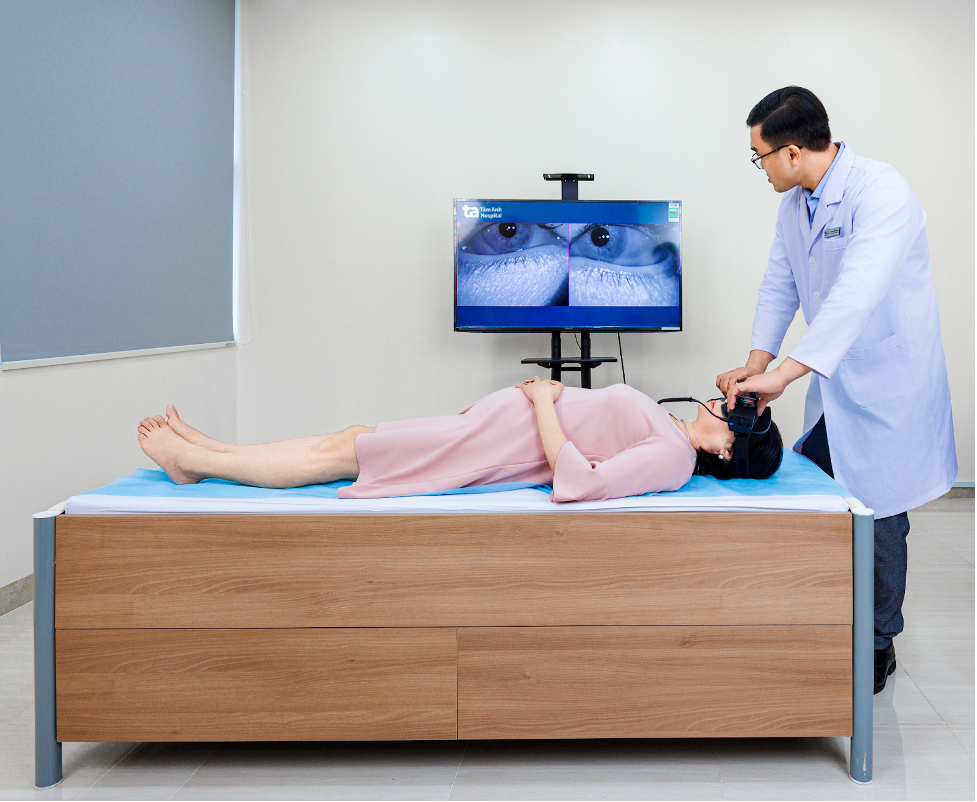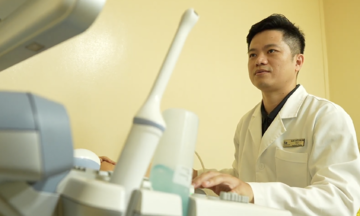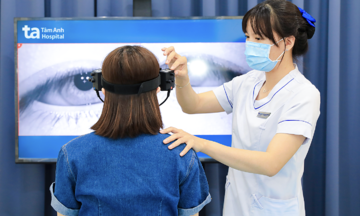Each time the symptoms appeared, Linh assumed it was cerebral ischemia and self-medicated. Recently, her symptoms worsened and recurred constantly, prompting her to visit Tam Anh General Hospital in TP HCM. Doctors examined her vestibular function and found reduced vestibulo-ocular reflex and nystagmus when she focused on a point, leading to a diagnosis of left vestibular neuritis.
"This is the youngest vestibular neuritis patient we have received," said Dr. Tran Thi Thuy Hang, Head of the Department of Otolaryngology, adding that vestibular neuritis typically affects middle-aged and older adults, most commonly between 40 and 50, with a higher prevalence in those over 70 and more common in women than men.
Vestibular neuritis (a type of peripheral vestibular disorder) is inflammation or dysfunction of the vestibular part of the eighth cranial nerve (vestibulocochlear nerve). Symptoms include dizziness, nausea, and vomiting, often mistaken for cerebral ischemia or other common ailments.
Similarly, Kim, 27, 28 weeks pregnant, experienced frequent dizziness, nausea, loss of balance, and a spinning sensation, making her stagger when walking. Fearing a brain tumor or stroke, she visited Tam Anh General Clinic in District 7. Testing her vestibular function using the AI-integrated Interacoustics system revealed right vestibular neuritis.
Dr. Nguyen Tri Minh Tri of the Otolaryngology Unit stated that Kim's left vestibulo-ocular reflex (vHIT) was significantly reduced. Videonystagmography (VNG) showed horizontal nystagmus towards the right, decreasing when she focused on a point, indicating a peripheral vestibular lesion on the left.
Doctors prescribed medication for Linh and Kim and guided them through vestibular rehabilitation exercises. After two weeks, Linh's dizziness and vomiting subsided, and her vHIT results improved. Kim's symptoms were controlled after 4 weeks of treatment.
 |
Kim undergoing vestibular function testing. Photo: Tam Anh General Clinic, District 7 |
Kim undergoing vestibular function testing. Photo: Tam Anh General Clinic, District 7
Vestibular neuritis symptoms can be confused with vestibular migraine, benign paroxysmal positional vertigo, Meniere's disease, multiple sclerosis, stroke, or transient ischemic attack. Risk factors for vestibular neuritis in younger individuals may include viral reactivation (especially herpes simplex type 1) in the vestibular ganglion, microvascular ischemia, or immune responses.
Dr. Hang explained that previously, diagnosis relied mainly on reported symptoms, leading to potential misdiagnosis or overlooked cases. Now, vestibular function tests allow for accurate assessment of damage and disease classification. If a central cause or brain tumor is suspected, an MRI is recommended. This ensures appropriate treatment, saving time and cost, and preventing dangerous complications, especially in older adults, those with underlying conditions, and pregnant women.
For prevention, vaccination, wearing masks in public, frequent handwashing, and avoiding crowds during outbreaks are recommended. Maintaining a healthy lifestyle, including abstaining from alcohol, tobacco, and processed foods high in fat and cholesterol, can prevent ischemia, a risk factor for worsening vestibular neuritis.
Sudden dizziness, loss of balance, nausea accompanied by tinnitus or blurred vision warrant an otolaryngology consultation for vestibular function testing. Accurate diagnosis and early treatment effectively control the condition and prevent more severe vestibular disorders.
Uyen Trinh
| Readers can submit questions about otolaryngology here for doctors to answer. |












